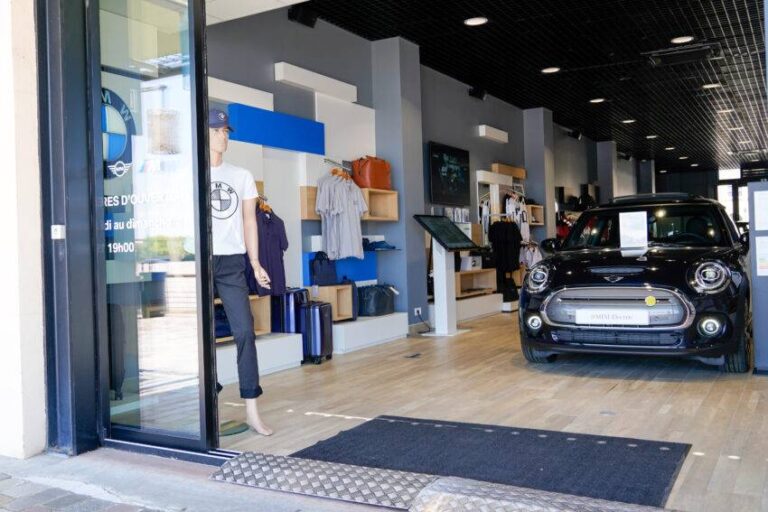[ad_1]
The European Commission has hatched a confidential Plan B proposal to “cushion” the impact of a looming 10% tariff on imports and exports of electric vehicles.
The proposal was presented to member states on Monday in response to pressure from carmakers to amend some of the conditions imposed when the UK left the EU in January 2021.
The commission is concerned that any decision to lift the tariff, even temporarily, would constitute a breach of the Brexit trade and cooperation agreement (TCA) and therefore require reopening the deal itself, to which it is vehemently opposed.
Under the plan, presented by the working party on the UK, a series of “cushioning measures” would be brought in to mitigate the impact of the 10% tariff, due to enter into force on 1 January 2024.
The main proposal is to extend the validity of the 2023 official “statements of the origin” – that need to be submitted when exporting cars – into 2024. This would guarantee that any electric vehicle ordered in 2023 but delivered in 2024 would be compliant with 2023 rules – when a tariff did not apply.
With lead times of up to six months for electric vehicles, the extension could give manufacturers some breathing space.
But the car industry, which asked for the tariff to be suspended as far back as March, is still lobbying for a three-year suspension of the tariff.
Under the Brexit trade agreement, from 1 January any electric vehicle exported from the EU to the UK or vice versa must be at least 45% made in either the EU or the UK or it will be subjected to a tariff. Because most of the cost of an electric vehicle comes from the battery, and most batteries are imported from China, manufacturers are racing to build the capacity to make batteries inside the EU so as to avoid these tariffs.
Carmakers in Britain and across the rest of Europe, including Stellantis, Ford, BMW JLR, Volkswagen, Volvo, and Mercedes-Benz, have all called for the tariff to be suspended for three years to allow time for new battery factories and their associated supply chains to get up and running.
Luca de Meo, group chief executive of Renault, who is also the president of the European Automobile Manufacturers’ Association, ACEA, said on Wednesday that failure to lift the tariff could cost the industry “billions of euros”.
Germany and other countries with a significant car manufacturing base support the suspension of the tariff, but France has been arguing that this would involve re-opening the TCA and require support from 27 member states.
De Meo said efforts to persuade France that doing a deal on tariffs would not mean reopening the trade agreement had gone “very high in the hierarchy” because it was a “very important topic”.
One car industry source said: “We need a decision now. Everything vis a vis the relationship between the EU and the UK is completely last minute. It’s the end of November. It is last minute now and we are super worried.”
The commission proposal has so far been presented only orally, and member states are expected to respond once it becomes a written proposal. It is understood that some fear the commission’s “cushioning measures” could be legally challenged.
[ad_2]
Source link






















0 Comments